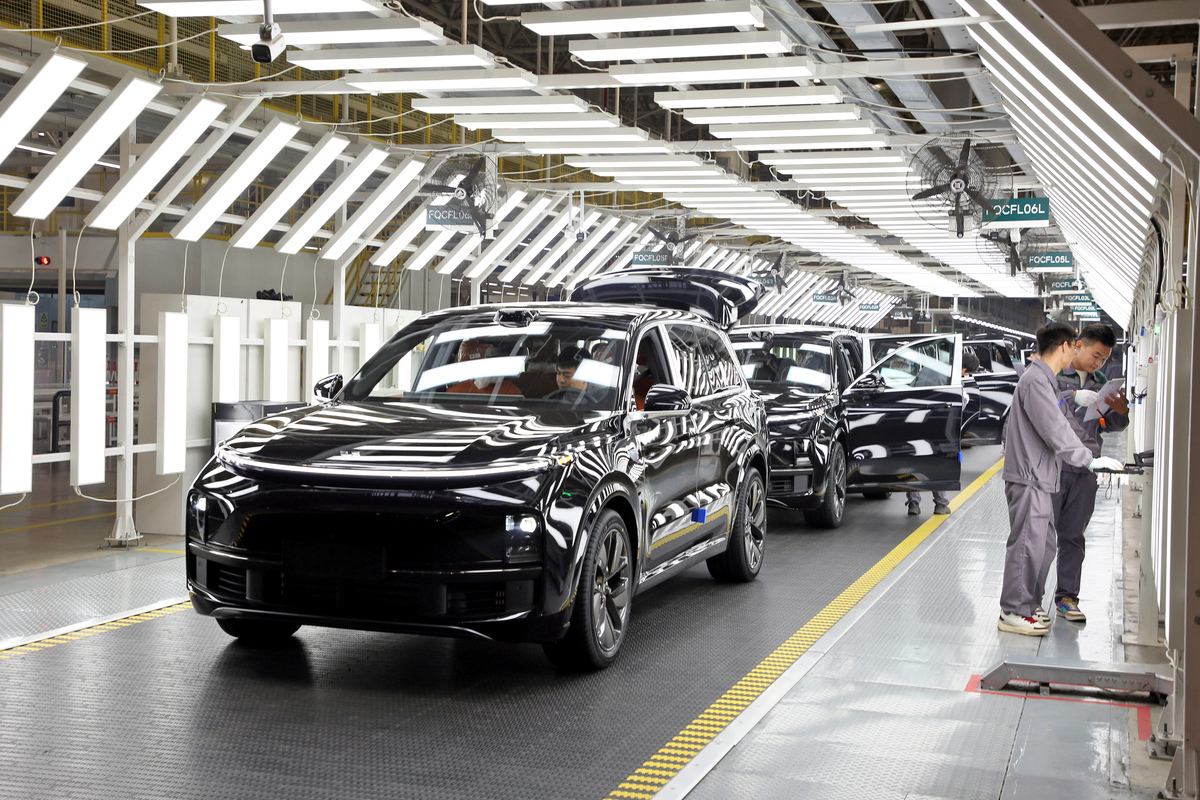
China is taking measures to boost domestic consumption in order to invigorate its slowing down economy. One of the measures is to provide government subsidies to encourage enterprises, including manufacturers, to upgrade their equipment and individuals to replace their old household appliances and cars with new ones.
Cars are among the most expensive movable assets of most families. According to available data, by the end of 2023, China had 435 million motor vehicles, of which 336 million were cars and trucks, with 24.56 million of them being registered or having received a license plate last year. In fact, for the past 10 years, more than 20 million vehicles have been added to the national fleet every year. That means, starting from now, at least 20 million vehicles will become 10 years old every year and should be either scrapped or sold in the used-car market — indicating a huge second-hand car trade business.
READ MORE: Roaring consumption engine powers China's economy ahead
Data also show that last year, 18.41 million motor vehicles changed hands in the used-car market for a total value of 1.18 trillion yuan ($162.99 billion). The fast-increasing number of cars and the subsidies given to people to sell their old cars, observers say, will help increase the used-car trade by 45 percent to about 2 trillion yuan before 2027.
A lot more people, I believe, will sell their gasoline-burning vehicles in the used-car market so they can try their hands at electric vehicles (EVs). As a matter of fact, I could be one of them. When I bought my petrol-powered SUV three years ago, I planned to use it for five to seven years while waiting for EV makers to further extend the battery life and the government to set up more charging stations/piles.
But things seem to be moving faster than I expected. While three years ago, most EVs could cover 300-400 kilometers after charging the battery once, today the EVs can cover 600 km on one charge. Also, millions of charging piles have been set up at convenient locations, even inside residential compounds.
These changes, along with my shrinking wallet, have made me think of changing from a gasoline-powered car to an EV, because I could save two-thirds of the cost of fuel. I have resisted the impulse to sell my car and buy an EV mostly because I love my SUV, which has run a little over 10,000 km in three years. Another reason is the unpleasant stories both the sellers and buyers have told me about the used-car market.
A recent CCTV special program followed a man into a used-car market in Beijing. When the man tried to drive his car into the market so that specialists could check it and offer him the right price, he was stopped at the entrance and told by the guard that the market allowed only buyers, not sellers, inside. While driving to a nearby parking lot, as guided, he was stopped several times by people who said they were interested in buying his car. But the prices they offered ranged from as low as 20,000 yuan to a high of 70,000 yuan, leaving him puzzled.
During his hour-long trip, the man failed to see any authoritative dealer. One dealer said he bought the old cars mostly from agents who obtained the vehicles at lower than expected prices outside the market, suggesting foul play.
ALSO READ: Top auto giants reach out for Chinese tech
Stories of second-hand car buyers being cheated by sellers using doctored documents have also been doing the rounds. Worse, the victims failed to get the fraudsters punished, as they deserve, because it's difficult to get the necessary evidence.
I am hesitant to venture into a used-car market or go to a dealer because of such stories. I am also hesitant because I have no idea if the dealers I meet would be trustworthy and offer the price my beloved car deserves.
I am not an expert in used cars or the used-car business. But I really think that government authorities and supervisors should make greater efforts to regulate the used-car market before they can expect more car owners to sell their old cars and buy EVs, thereby reducing carbon emissions.
The author is former deputy editor-in-chief of China Daily.


